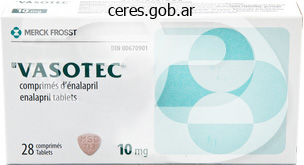
General Information about Enalapril
Like any medicine, enalapril might trigger unwanted aspect effects in some people. The most common side effects embody dizziness, lightheadedness, and a dry cough. More severe unwanted effects, though uncommon, could embody chest ache, issue respiratory, and swelling of the face, throat, or extremities. It is necessary to seek medical attention if any of these symptoms happen.
High blood stress, also called hypertension, is a medical situation in which the drive of blood against the walls of the arteries is consistently too high. Over time, this can lead to critical health problems such as heart illness, stroke, and organ injury. Enalapril works by helping to chill out and widen blood vessels, making it easier for the guts to pump blood and reducing the workload on the heart.
Enalapril is out there in tablet form and is normally taken once or twice a day, with or with out meals. The dosage will depend upon the individual's situation and response to the medicine. It is important to take enalapril as prescribed and not to miss any doses, as this can affect the effectiveness of the treatment. It might take several weeks for the full effects of enalapril to be felt, so it is important to continue taking it as directed even when there aren't any quick signs.
Enalapril may work together with different medications, so it may be very important inform the doctor of any other drugs, supplements, or natural treatments being taken before beginning treatment. This contains over-the-counter drugs such as ibuprofen and naproxen, in addition to prescription medications for different circumstances.
Enalapril can be used to treat coronary heart failure, a condition in which the guts is unable to pump sufficient blood to fulfill the body's needs. This may cause fluid buildup within the lungs and extremities, leading to signs similar to shortness of breath, fatigue, and swelling in the legs and toes. By lowering blood pressure and improving blood circulate, enalapril may help to scale back the symptoms of coronary heart failure and improve the standard of life for those residing with the condition.
In addition to high blood pressure and coronary heart failure, enalapril may also be prescribed for different heart-related conditions such as diabetic nephropathy, a complication of diabetes that impacts the kidneys, and left ventricular dysfunction, a situation during which the left aspect of the heart is unable to pump blood successfully. It may be used to prevent or manage heart assaults in patients with a historical past of heart disease.
Enalapril, model name Vasotec, is a generally prescribed medication for the therapy of hypertension, coronary heart failure, and other heart-related circumstances. It is classed as an angiotensin-converting enzyme (ACE) inhibitor, that means it works by blocking a pure substance in the body that constricts blood vessels and increases blood pressure.
In conclusion, enalapril, also called Vasotec, is a commonly prescribed medication for the therapy of high blood pressure, coronary heart failure, and different heart-related circumstances. As an ACE inhibitor, it actually works by stress-free blood vessels and reducing blood pressure, decreasing the risk of significant well being complications. It is necessary to observe the prescribed dosage and inform the physician of some other medications being taken to keep away from potential interactions. With correct use, enalapril may help improve the overall health and well-being of those with heart issues.
Causes of hemobilia include iatrogenic and accidental trauma, gallstones, inflammation, vascular disorders, and neoplasms. With the increasing use of invasive diagnostic and therapeutic procedures involving the biliary tract, iatrogenic trauma has become the predominant etiology of hemobilia (see Chapters 21, 27, 30, 52, 122, and 124). Major, profuse hemobilia is a rare but sometimes lifethreatening complication of liver or biliary tract disease or trauma. Minor hemobilia occurs more frequently but rarely is of long-lasting clinical significance. With the advent of interventional radiologic approaches, treatment of symptomatic hemobilia has shifted from surgical therapy to selective transcatheter hepatic arterial embolization (see Chapters 21, 27, and 124). Surgical therapy through partial hepatectomy, hepatic artery ligation, or a combination of both procedures is rarely necessary and reserved for patients in whom the hepatic arterial branches cannot be safely or adequately embolized because of anatomic or technical reasons, or for patients who have large intrahepatic hematomas and/or sepsis. In 1777, Antoine Portal presented a case in which he made the diagnosis before the death of the patient and confirmed it at autopsy. In this early treatise, Portal (1813) drew attention to the difficulty of finding the source of hemorrhage in the biliary tract, "when they are slight in quantity and occur but seldom," and to the risk of mistakenly tracing them to a healthy organ, a mistake that has been made repeatedly in the history of hemobilia. The first published case in North America was by a Boston surgeon, Jackson (1834), who reported on the clinical and pathologic consequences of an "aneurysm of the hepatic artery bursting into the hepatic duct," the first direct observation of an abnormal communication between the blood vessels and biliary ducts (see Chapter 124). Other, less common causes include nematodes, blood coagulation defects, choledochal cysts, pancreatitis, and portal hypertension. In one of the first publications devoted solely to hemobilia, Sandblom (1972) reported on 355 cases of hemobila reported before 1972, with the largest number secondary to accidental trauma. Over the next 30 years, iatrogenic trauma surpassed all other causes of hemobilia and currently is responsible for the majority of cases (Green et al, 2001; Yoshida et al, 1987).
Enalapril Dosage and Price
Vasotec 10mg
- 60 pills - $38.99
- 90 pills - $51.93
- 120 pills - $64.88
- 180 pills - $90.76
- 270 pills - $129.60
- 360 pills - $168.43
Vasotec 5mg
- 60 pills - $34.76
- 90 pills - $45.88
- 120 pills - $57.01
- 180 pills - $79.25
- 270 pills - $112.62
- 360 pills - $146.00
